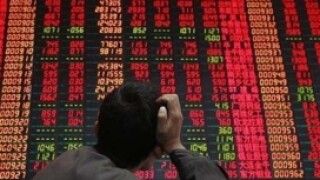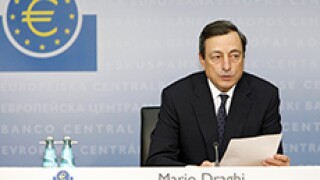News content
-
A Russia euro-denominated bond has taken investors by surprise this week, as emerging markets issuers seem to be taking their last gasps in the bond market this year.
-
General Holding Corporation (Senaat) — one of the United Arab Emirate’s largest industrial investment holding companies — printed a $300m seven year sukuk on Tuesday after releasing exceptionally wide guidance and slamming it tighter.
-
US medical technology company Stryker had to wait longer than it planned for its debut in the European corporate bond market, but when the chance to launch the deal came on Tuesday, it achieved the hat-trick it was aiming for with an extra tranche added for good measure.
-
Belgian chemicals manufacturer Solvay sold its first public corporate bonds for three years on Tuesday when it reopened the European hybrid bond market, which has not seen a new issue since September. Despite the recent dearth of issuance, the market is still set to record an increase of more than 57% on 2017’s total volume.
-
The Federation of Russia is returning to the bond markets for the first time since a set of US sanctions in April sent the country’s bond trading into a tailspin. But despite books for the bond already being in excess of €1bn, several bankers away from the deal are describing it as a “political statement” rather than a well thought out trade, and are heavily criticising the timing and choice of euros for the note.
-
On Monday, Austrian oil and gas company OMV’s first senior corporate bonds of 2018 attracted €3.9bn of total demand for a pair of €500m notes with five year and 10 year tenors. The demand allowed the issuer to tighten the spread by more than 20bp on the longer tranche.
-
On Monday, French supermarkets group Carrefour made its second visit to the corporate bond market of 2018, once again in the wake of a period of volatility. However, the company’s timing proved to be good as it was able to tighten pricing 15bp from initial price thoughts.
-
French postal operator La Poste saved the corporate bond market in Europe from registering a blank week when it sold its first green bond on Friday. Despite the negative sentiment that had pervaded the market throughout the week, the company paid a new issue concession at the lower end of the range paid by deals the previous week.
-
Takeda Pharmaceutical, the Japanese firm buying UK rival Shire, defied tough market conditions to press ahead with a $5.5bn trade to help fund its $62.5bn acquisition ahead of the Thanksgiving holiday.
-
Bankers in the corporate bond market still have a number of deals on their pads to try to execute ahead of the end of 2018. None was successful this week, but that hasn’t dented their ambition.
-
US medical technology company Stryker is still looking to bring its debut euro transaction following its recent roadshow, but is waiting for market conditions to improve before pushing its triple-tranche offering into the market.
-
The US Federal Reserve has been raising rates for nearly three years now and was tapering its quantitative easing for two years before that. Meanwhile the European Central Bank was still cutting its rates and only in 2018 did it start tapering its quantitative easing. However, the change in the ECB’s policy may mean we see growth converging rather than diverging and it is something investors are already considering.










